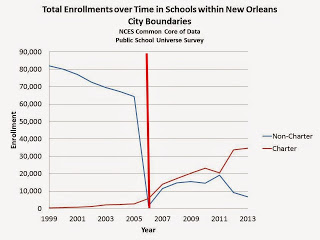The last 15 years have destroyed the intellectual foundation of American education
My favorite example is the argument in favor of teaching science and history for the purpose of improving "literacy." We don't have any working definitions of the core academic disciplines. Or a working definition of a "discipline" or its role in education. The basic definition of education has been hijacked as "college and career readiness," etc., etc. After Vietnam, the US military went back to Clausewitz to try to figure its role out again from first principles. We need to start over with Dewey.
Half-assed technocrats don't cut it.
Educational administrators are always going to tend toward technocracy, but right now we have a generation of terrible, uninterested, uneducated, ideological technocrats. It is the worst case scenario.
The international educational status quo is a decent starting point.
Every system has its strengths and weaknesses, but we don't have to act like we're solving a novel problem, as we have been, even as people go on and on about "international benchmarking."
Be realistic about where we are actually putting in real effort today.
For example, the current conversation about the difficulty of building social capital in low-income neighborhoods. This isn't something we're trying to do and failing. We are barely trying at all. We're not even adequately funding the existing public institutions (libraries, community centers, parks and rec., etc.) in low-income neighborhoods. Why don't we try that first before starting the handwringing?
Fund schools from general funds, not grants, especially private ones.
Some districts will waste their money. Get over it.
The ed-tech market does not work.
Actually the whole educational publishing market doesn't work either.
Enough with the standardized tests.
Professional teachers can evaluate their students. It is their job. They do it all over the world.
AP is a product, not a proxy for quality.
Increased AP enrollment just means the school is moving more product.
It is easy to mislead people about what "we" believed and did just a few years ago.
The memory hole is voracious.
Education can't be the most important problem in the world -- that we can only attempt to fix without spending more money.
Well, it is ok to give money to consultants, charter administration, and real estate scams.

